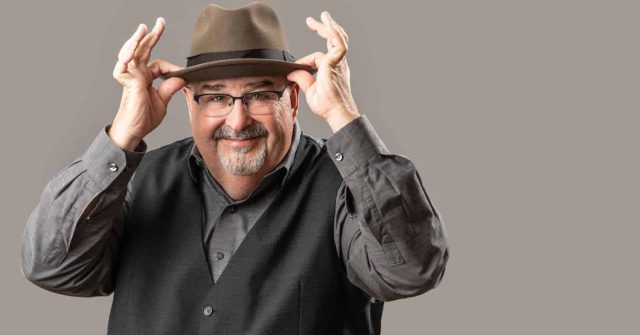
No American city can top the musical contributions of New Orleans. With foundational influence in nearly every important modern musical movement (Jazz, Rock and Roll, and Funk, to name a few), the crescent city has for over a century been a reliable hotbed of musical talent, exploration, and innovation.
It comes as no surprise then, that the city is producing and molding high-level artists to this day. On Wednesday, piano whiz John “Papa” Gros, one of the city’s finest contemporary players, will play The Dakota, giving Twin Cities music lovers an authentic dose of top-shelf big easy sounds.
Gros has an extensive and impressive resume, playing with many of the greats across a decades-long career. Having recorded and toured extensively as both a sideman and a leader (including a notable tenure leading Papa Grows Funk), Gros boasts an impressive and versatile skill set that shines through clearly on his releases (Including 2020’s excellent Central City), and especially in his spirited, energetic live shows.
On Wednesday, fans can expect to hear from Central City and more, all filtered through Gros’ distinctive funky take on classic and modern sounds from New Orleans and Beyond. Promising an elusive, but always-necessary combination of good tunes, and good vibes, the show will be a hit for Music History buffs and casual fans alike
Music In Minnesota: How did you get started playing music? When did you realize it was something that you wanted to pursue?
John “Papa” Gros: My father played and taught piano. There was always a piano in the house and the first music I heard probably came from that piano. Early on I fell in love withe the joy music brought me and wanted to learn how to create the positive energy in music. It was much later in life, after college, when I chose to be a lifelong musician.
MIM: New Orleans has such a rich musical history that you’re a part of. How did you fall in love with that music, and how did you begin to see yourself as an ambassador for it?
JPG: New Orleans music, plain and simple, is fun, happy music. I was fortunate enough to experience and absorb it as a toddler at Mardi Gras parades. The music of Fats Domino, Huey “Piano” Smith and all the other greats of the 50’s era was played at family parties. Without knowing it I became immersed in the sound. So when I began learning the music to play gigs, it’s as if I already knew it. There’s never been a part of my life where I haven’t loved New Orleans music. It’s in my DNA.
When Hurricane Katrina nearly destroyed New Orleans and our government questioned our existence, it became clear my job was no longer a piano player in the band. Overnight I became an advocate and ambassador for New Orleans, sharing our significance as a living and breathing cultural entity, one where American music was birthed from it’s womb. Our music and food changed the world and society needed to be reminded of it. I’ve been sharing my love for New Orleans ever since.
MIM: You’ve worked with and learned from many of the greats in New Orleans and American Music. Who were the most impactful musicians and teachers on your development as a player and artist?
JPG: I was fortunate to have amazing elementary school music teachers who taught by day and performed in the community. I carry Mrs. Janelle Couvillon and Ronnie Brothers love and enthusiasm for music everyday. It’s the same love and enthusiasm George Porter Jr. exudes every time he plays. My college French horn teacher, Jack Gardner and later on Allen Toussaint showed me the serious side of constructing music in a way so the emotional side can take over when performing. Johny Vidacovich has been a mentor since my college days. He describes and pinpoints delicacy of music like no other. I’ve also been influenced and challenged by close friends with whom I went to college, Mark Mullins of Bonearama, John Cowherd and Brian Bride, Matt Lemmler and many others. I’ve been surrounded by many who continue to lead and share by example how to be a professional New Orleans musician.
MIM: In your career, you’ve worked extensively as both a sideman and as a bandleader. How has your experience and skill playing as a sideman informed your work as a leader?
JPG: I understand where the sideman is coming from and what’s important to them. Sidemen have a lot of simple questions, and they just want to get straight answers. I’m talking simple, basic questions: What music do I need to learn? Where are we playing it? What time should I be there? What am I getting paid? Band leaders have so many more details to deal with they forget, and I am still guilty of this, to answer the basic questions. Being a band leader has made me a much better sideman.
MIM: You’re a strong songwriter as well as player. How has your writing process developed over the course of your career?
JPG: It all starts with a great song. You can’t get a gig unless you have a song. So writing and finding songs that represent me have been my focus. The older or should I say, more mature I get, the more I learn and understand who I am: where I come from, who I represent, what are my strengths and weaknesses. The better I know myself, the better the songs represent me and in turn the better I represent the songs.
Written by Aaron Williams (Music In Minnesota)
WED MAR 8 • 7PM
INFO + TICKETS>>
